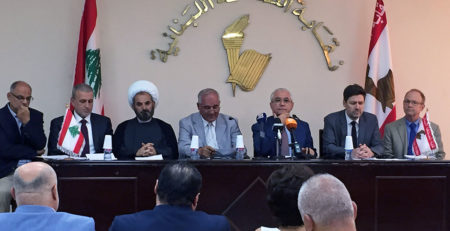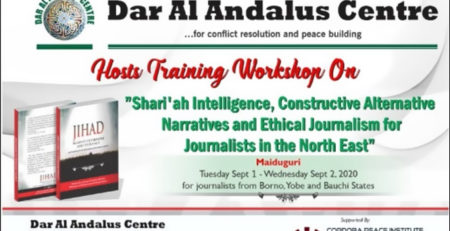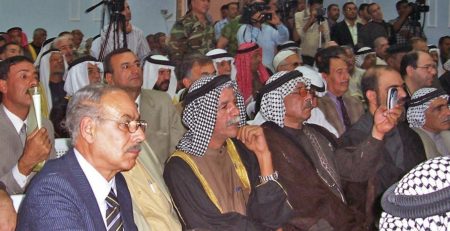Monthly Afghanistan News Roundup – December 2023
Ozair Khan
Within the framework of the Fiqhi Pathways project implemented jointly by CPI-Geneva and the Swiss FDFA’s Peace and Human Rights Division, engagement with Deobandi scholars of or close to Taliban and Pakistan is pursued to promote governance in line with IHL and Islamic jurisprudence through Fiqhi dialogue exchanges. This monthly newsletter aims to keep track of the discussions and debates among scholars on issues of governance policies of the Taliban, especially in the areas of education, social policies, and statecraft and governance institutions.
1. International situation
1.1. Hanafism only fiqh doctrine in Afghanistan?
Mullah Neda Mohammad Nadeem, the acting Minister of Higher Education, said that there are no schools of thought apart from Hanafism in Afghanistan and that Afghans are successful because they follow one common path, the way of Abu Hanifa [1].
One can claim this evidence demonstrates that the Taliban are predominantly driven by religious motives, not ethnicity. What counts is loyalty to the ideology, not whether someone is Tajik or Pashtun.
The Hanafi school of thought has had an essential place in Afghanistan for centuries. As a matter of fact, Hanafism was even mentioned in the 1964 constitution. Yet Nadeem’s comments suggest that the Islamic Emirate associate being Afghan with adhering to Hanafism. But one could ask, what about the quietist Salafi communities who do not follow the Hanafi school of thought or the Shia minority? Interestingly, in recent months, the de facto authorities have made it a point to establish a working relationship with Shia leaders. Some Taliban officials have also expressed that Shias in Afghanistan are their brothers [2]. But the matter is quite ambiguous since Nadeem’s statement seems to suggest otherwise.
1.2. Education: boys also face the same problems as girls
The situation regarding girls’ schooling is at a deadlock. Girls over grade 6 still cannot attend class. More and more of them have to attend madrasas to continue benefiting from some sort of education. However, there is a tendency to forget that boys suffer too, even if they are allowed to pursue their studies, as Human Rights Watch noted [3]. Male students are suffering from the lack of certified teachers. Besides, religious classes have replaced subjects such as art, civics and culture. The Taliban, as a politico-religious group, will naturally want to shape the society to become more Islamic. The international community must realise that the Taliban operate from a different worldview and will not make concessions on this overall “Islamisation” project. Nevertheless, it is worth mentioning that there is vigorous opposition within the Emirate’s ranks to some detailed elements of this “Islamisation” policy. A prime example is a recent statement by Abbas Stanikzai, the country’s Deputy Minister of Foreign Affairs, who said that the Islamic Emirate’s decisions on education have made people run away [4]. Therefore, until some issues are resolved internally, the international community should instead work with the Afghan authorities on issues where both sides are willing to collaborate. For example, Muhammad Nadeem has stated that his ministry plans to launch new PhD and Masters programs in the country [5]. NGOs or international institutions could support some of these endeavours, which could nurture desperately needed trust building.
2. Foreign Relations
2.1. Signs of rapprochement between the Taliban and its neighbours
The Islamic Emirate is slowly and steadily strengthening its ties with some of its neighbours. The Taliban have secured contracts with Uzbekistan, Turkmenistan, and Tajikistan to import electricity and improve overall bilateral trade [6]. Kazakhstan made an intriguing move by excluding the Islamic Emirate from its list of terrorist organisations in an effort to strengthen its political and economic relations with Afghanistan [7].
2.2. China accepts Taliban ambassador
China has become the first nation to accept a Taliban ambassador, although officials in Beijing explained it isn’t a recognition of the Islamic Emirate [8]. The authorities in Kabul control the Afghan embassies and consulates in over a dozen countries, but none of these countries’ governments had yet recognised an ambassador. The reasons behind China’s historic move are twofold. First, China is concerned about the Islamic Emirate harbouring armed groups that may pose a security threat, including the Uighur armed resistance. Secondly, Beijing aims to expand its sphere of influence by undermining its main rivals, India and the United States.
Despite China’s seemingly strong presence in Afghan affairs, one should not overestimate Beijing’s weight. Apart from public displays of friendship, China prefers to be involved on a day-to-day basis from afar, meaning that even though it has on paper invested billions, it is, in reality, a fraction of what would have been spent had the country been stable. Afghanistan is not one of China’s top priorities from a business point of view [9].
2.3. Tempered relations with Russia
The acting Interior Minister, Sirajuddin Haqqani, discussed with the Russian special envoy for Afghanistan, Zamir Kabulov, Russia’s support for Afghanistan in regional and international meetings, bilateral relations, security matters, and trade developments. According to Kabulov, Afghanistan’s security has positive implications for the region, and he urged the United Nations to be more understanding towards the Afghan government [10]. Like China, Russia worries about armed groups on Afghan soil, and it also wants to spread its influence in the country. Nonetheless, its seeming good relations with the Islamic Emirate are tempered. As proof, Kabulov reacted to Kazhakstan’s decision to remove the Taliban from its terrorist list by stating that Russia is not planning on doing the same [11].
2.4. UN resolution to appoint a special envoy for Afghanistan
The motto that sums up best China’s and Russia’s ambivalent relationship with the current Taliban authorities comes from the expert on Afghan affairs, Ahmed Waleed Kakar, who once described Russia’s behaviour towards the Islamic Emirate as: “Duri wa Dusti”, meaning friendship from afar [12]. This peculiar friendship was on display at a meeting of the Security Council regarding Afghanistan on 29 December 2023. Both China and Russia abstained from voting on a resolution to appoint a special envoy for Afghanistan to increase engagement with the Taliban leaders [13]. This resolution, which was passed, follows an independent assessment report published in October 2023, written by the Turkish veteran diplomat Feridun Sinirlioğlu, whom UN Secretary-General Antonio Guterres appointed. Sinirlioğlu advised greater engagement with the Taliban by assigning a UN special envoy. Several parties heavily criticised the Security Council’s decision. According to Zabihullah Mujahid, the Islamic Emirate’s spokesperson, Afghanistan’s central government is strong and fully capable of handling its own concerns, making the establishment of parallel mechanisms by the United Nations unacceptable [14]. Opponents of the Taliban similarly criticised this UN verdict even if Roza Otunbayeva, the Special Representative of the Secretary-General for Afghanistan and Head of the United Nations Assistance Mission in Afghanistan, clarified that engagement does not mean recognition [15]. In the eyes of the Taliban critics, this resolution is a sort of whitewashing of the current regime, and, at some point, the UN will have to make concessions to please the de facto Afghan authorities.
2.5. Relations with Iran: Different levels of enthusiasm
The Minister of Foreign Affairs, Amir Khan Muttaqi, was invited to a conference in Tehran about the catastrophic situation in Palestine [16]. During his trip, he met several Iranian officials to strengthen ties. After returning, he declared that the Emirate’s relations with the Islamic Republic of Iran are “at their best” [17]. As a matter of fact, the Iranian embassy and consulates operate in Kabul and certain Afghan provinces, while the Afghan embassy in Tehran and the consulates in Mashhad and Zahedan are likewise operational. Besides, Mullah Ghani Bardar, the acting first deputy Prime Minister, visited Iran one month earlier to enhance bilateral trade, transportation, and transit. However, the Iranian side clearly doesn’t share the same enthusiasm. For example, during the UN Security Council meeting on Afghanistan mentioned above, Iran’s ambassador to the United Nations, Amir Saeid Iravani, criticised the Taliban’s lack of anti-terrorism efforts and the persistent presence in Afghanistan of IS and Al-Qaeda affiliates [18]. Also, a few Iranian journalists accused the current Afghan government of hosting Jaish al Adl, the armed group responsible for attacking a police post and killing 11 officers on 15 December 2023 in Rask [19]. This explanation lacks credibility, as the Taliban and Jaish ul Adl have clashed in the past. Analysts widely believe that Jaish ul Adl is, in reality, hiding in the Pakistani province of Baluchistan.
3. The eternal Pakistani problem
3.1. The Daraban attack
Often, most news related to Afghanistan revolves around the tensions between the two neighbours. The expulsion of Afghan nationals from Pakistan is ongoing, with nearly 800,000 returnees [20]. Moreover, the Pakistani forces have experienced yet another major attack, intensifying the tensions between the two countries. At least 23 people were killed in a gun and suicide bomb attack perpetrated by a relatively unknown faction called Tehrek Jihad Pakistan (TJP) on a military post on 12 December 2023. The incident occurred in Daraban, in the Pakistani province of Khyber Pakhtunkhwa, on the border of Afghanistan [21]. The origins of TJP are fairly mysterious. Still, many analysts think it is a branch of the TTP (Tehrek Taliban Pakistan, the Pakistani Taliban), which Pakistan accuses the Islamic Emirate of hosting [22]. Pakistan’s counter-terrorism department announced that the suicide bombers in this attack were Afghan [23]. The Islamic Emirate responded by stating that it does not provide shelter to such groups and affirmed that 40 TTP members are imprisoned in Afghanistan, which failed to convince Pakistan [24].
3.2. New round of negotiations through religious scholars
During his trip to Tehran for the Palestine conference mentioned earlier, Amir Khan Muttaqi encountered Pakistani Senator Mushahid Hussain Syed. Muttaqi informed Syed about the lack of a high-level communication channel between Islamabad and Kabul. Muttaqi furthermore stated that following the Taliban’s return, the Islamic Emirate nearly facilitated a deal between the TTP and Pakistan, but the latter chose to withdraw [25].
Due to the escalating tensions, there are new attempts to foster peace. In early December 2023, The Islamic Emirate officially invited Maulana Fazlurahman, president of the Pakistani Deobandi political group Jamiat Ulema-e-Islam, to come and help alleviate uncertainties surrounding the TTP and refugees, but also to enhance the Taliban’s reputation in Pakistan [26]. Fazlurahman accepted the invitation and announced his intention to travel in the coming weeks. On the other hand, Afghanistan is sending Mullah Muhammad Shirin Akhund, the governor of Kandahar, who is close to Haibatullah Akhunzadah, to discuss with Pakistani officials the deteriorating relationship between the two neighbours [27]. The urgency of the situation is evident by the fact that a religious scholar from Kandahar was sent instead of the Minister of Foreign Affairs from Kabul.
References
[1] https://www.afintl.com/202312172497
[2] https://youtu.be/2NYGdurva2k?si=eAuk9WXEOWR-8KPU
https://youtu.be/2NYGdurva2k?si=pyPYS3Y6_F8_JBaU
[3] https://www.hrw.org/report/2023/12/06/schools-are-failing-boys-too/talibans-impact-boys-education-afghanistan
[4] https://tolonews.com/afghanistan-186389
[5] https://youtu.be/Vm-b7DJ9Rr8?si=7MKgdQ4oFGVFwVHo
[6] https://www.afintl.com/en/202312163931
https://twitter.com/AFIntl_En/status/1740385674551775508?s=19
https://www.google.com/amp/s/www.afintl.com/en/202312275237
[7] https://eurasianet.org/kazakhstan-removes-taliban-from-list-of-banned-organizations
[8] https://www.lemonde.fr/en/international/article/2023/12/09/china-welcomes-taliban-ambassador-without-recognizing-the-afghan-regime_6325935_4.html
[9] https://thediplomat.com/2023/05/chinas-gamble-in-afghanistan/
[10] https://tolonews.com/afghanistan-186596
[11] https://www.afintl.com/202312297675
[12] https://youtu.be/I-DXvzwoqwM?si=tMvuZ01w9VG16HfX
[13] https://www.google.com/amp/s/www.rferl.org/amp/un-afghanistan-special-envoy/32753484.html
[14] ibid
[15] https://www.voanews.com/a/un-calls-for-more-direct-engagement-with-taliban/7406055.html
[16] https://www.afintl.com/en/202312228462
[17] https://www.afintl.com/202312250947
[18] https://www.tasnimnews.com/en/news/2023/12/21/3009827/iran-deplores-taliban-s-restrictions-on-afghan-womenen/amp
[19] https://www.afintl.com/202312182638
[20] https://tolonews.com/index.php/afghanistan-186615
[21] https://www.google.com/amp/s/www.aljazeera.com/amp/news/2023/12/12/894
[22] https://twitter.com/khorasandiary/status/1681289597547065344?s=19
[23] https://www.afintl.com/202312230660
[24] Ibid
[25] https://tribune.com.pk/story/2451125/pak-ttp-were-close-to-a-deal-claims-afghan-fm
[26] https://www.afintl.com/202312287776
[27] https://www.google.com/amp/s/www.dawn.com/news/amp/1801982












